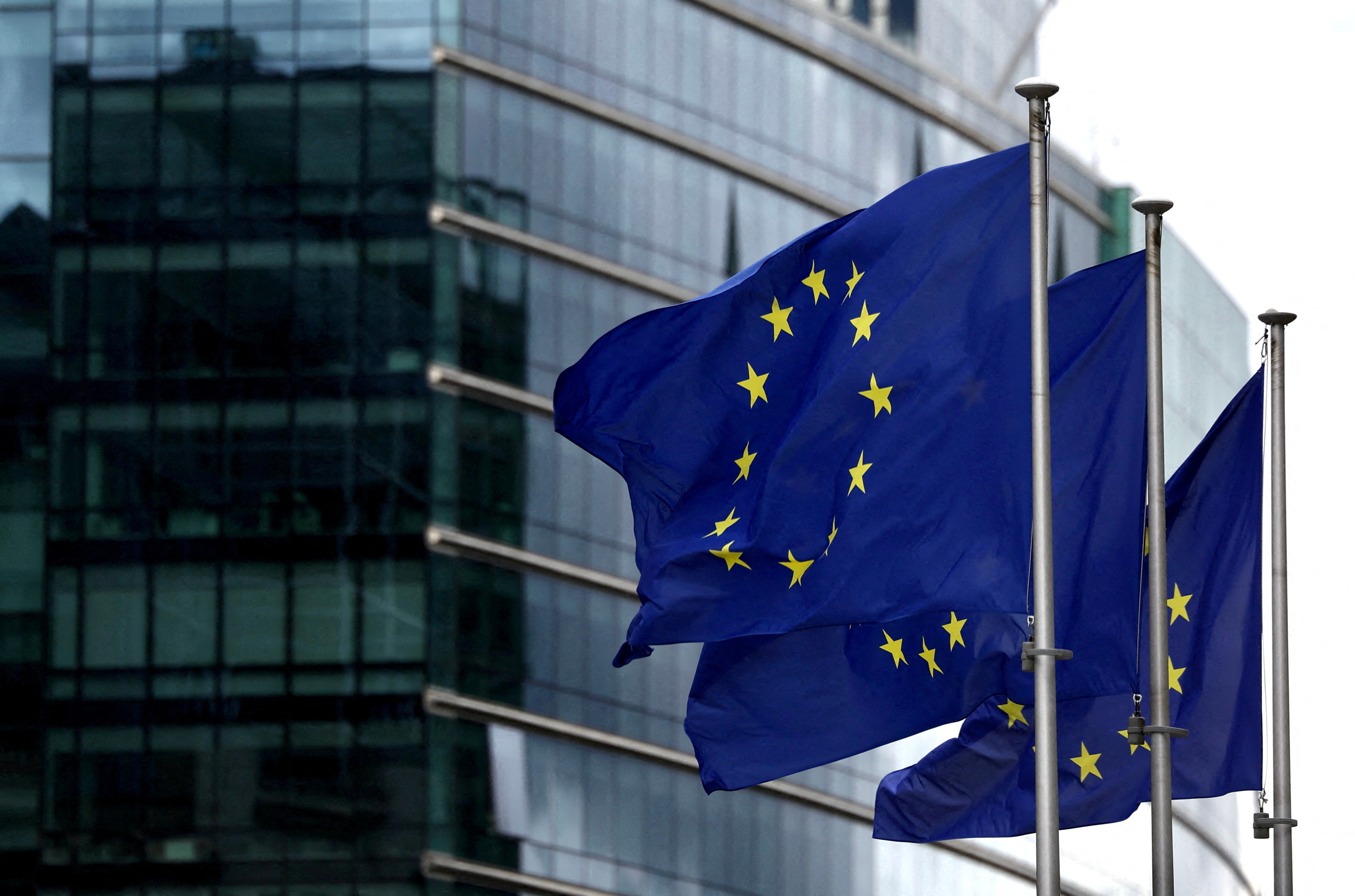
European flags fly outside the European Commission headquarters in Brussels, Belgium September 20, 2023. REUTERS/Yves Herman//File Photo Acquire Licensing Rights
BRUSSELS, Oct 16 (Reuters) – European Union finance ministers will discuss on Tuesday ideas for balancing debt reduction and investment in the 27-nation bloc, but views remain far apart and the next step towards a compromise is unlikely until November, officials said.
The talks are part of a revision of the EU’s fiscal rules that underpin the euro and that financial markets are watching closely. The rules have been suspended since 2020 but are to be reinstated from 2024 and EU governments want to update them before they kick in again.
The rules limit budget deficits to 3% of GDP and public debt to 60% of GDP. If debt or deficits exceed these limits, the rules envisage disciplinary steps against governments which do not cut the excessive borrowing fast enough.
Many European governments far exceed the deficit and debt limits and at the same time need to invest to fight climate change, which focuses the discussions on a delicate balance between debt reduction and investment and reforms.
Germany wants all EU countries to be obliged to cut public debt by at least 1% of GDP a year.
France believes that any debt reduction at all over four years would be fine. The four years could even be extended to seven years if a government invests in what the EU considers priority areas like fighting climate change.
“Differences between EU member states are still quite substantial, especially with regard to numerical (debt reduction) benchmarks… that are very much at the centre of debate,” one senior EU diplomat said.
Also in the mix is the balance of power between the EU’s executive commission and the council of EU governments in deciding the debt reduction paths and steps in the disciplinary procedures as well as issues of how to enforce the new rules.
Spain, which holds the rotating EU presidency until the end of the year, is hoping to bring the 27 governments sufficiently close to a deal by the next ministerial meeting on Nov. 8-9 to present a proposal for a legal text they could debate.
Realising this may be an ambitious timeline, a Spanish presidency official said Madrid was ready to organise extraordinary meetings of EU finance ministers after that to get a deal before the end of the year.
“We do not contemplate a scenario without an agreement,” the Spanish presidency official said.
Reporting by Jan Strupczewski; Editing by Sharon Singleton
Our Standards: The Thomson Reuters Trust Principles.